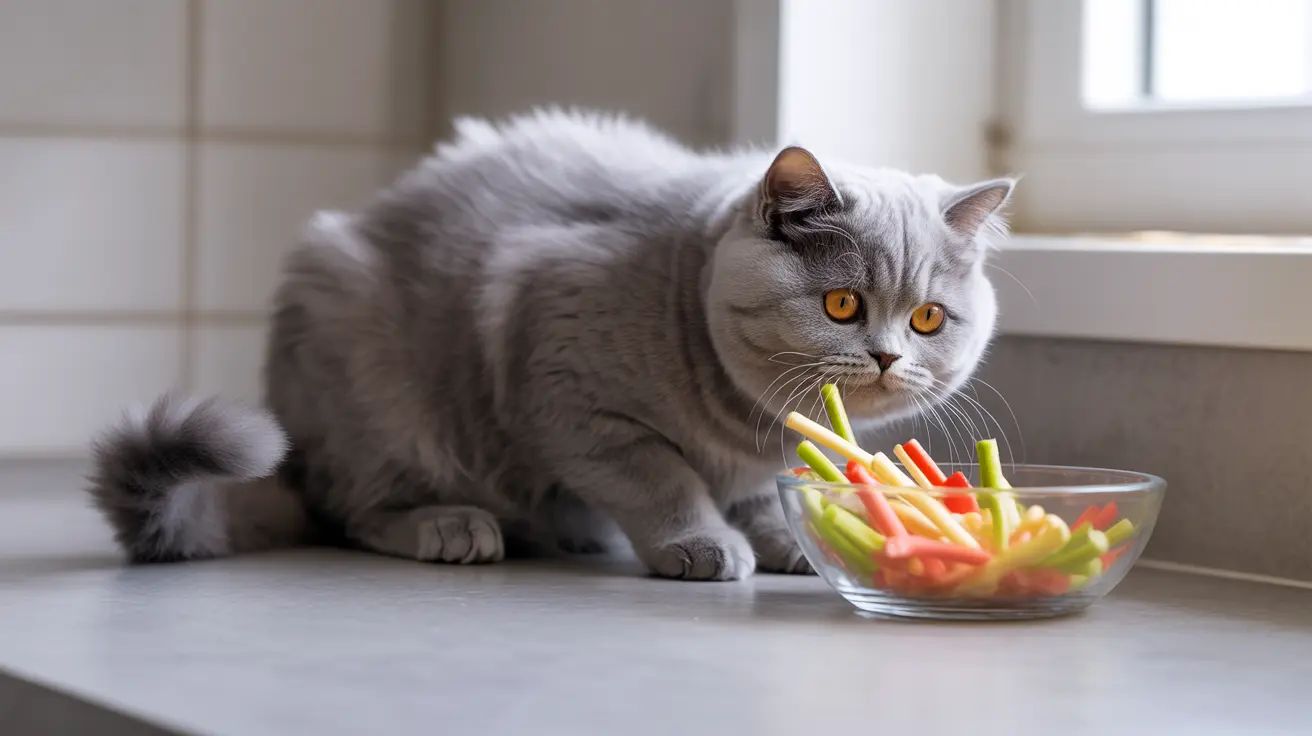As pet owners increasingly share their snacks with their feline companions, the question of whether cats can eat veggie straws has become more common. While these crunchy snacks might seem like a harmless treat, understanding their potential impact on your cat's health is crucial for responsible pet ownership.
Cats are obligate carnivores, which means their bodies are specifically designed to process and utilize nutrients from animal-based proteins. This fundamental aspect of feline biology makes most human snacks, including veggie straws, potentially problematic for their health.
The Nutritional Mismatch: Why Veggie Straws Aren't Cat-Friendly
Veggie straws primarily consist of processed potato starch, corn starch, and vegetable powders. Despite their vegetable-inspired name, these snacks offer virtually no nutritional value for cats. The average serving contains less than 1 gram of protein, while cats require high-protein diets for optimal health.
The macronutrient profile of veggie straws is completely misaligned with feline dietary needs:
- High in carbohydrates and starches
- Low in animal-based protein
- Contains unnecessary fats and oils
- High in sodium content
Hidden Dangers: Toxic Ingredients for Cats
Many veggie straw varieties contain ingredients that can be toxic or harmful to cats:
Dangerous Seasonings
Onion and garlic powder, common in many flavored varieties, can cause severe health issues in cats, including potentially life-threatening hemolytic anemia. Even small amounts of these ingredients can be dangerous.
Problematic Additives
Some varieties contain dairy-based seasonings, which can cause digestive issues in lactose-intolerant adult cats. The high sodium content can lead to dehydration and put stress on your cat's kidneys.
Health Risks of Feeding Veggie Straws to Cats
Short-term Risks
- Gastrointestinal upset
- Vomiting and diarrhea
- Dehydration from excess sodium
- Allergic reactions
Long-term Concerns
- Weight gain and obesity
- Potential kidney issues
- Nutritional deficiencies
- Development of unhealthy eating habits
Safe Alternatives to Veggie Straws
Instead of sharing veggie straws with your cat, consider these veterinarian-approved alternatives:
- Commercial cat treats formulated for feline nutrition
- Small pieces of plain, cooked chicken or turkey
- Freeze-dried meat treats
- Commercial dental treats designed for cats
What to Do If Your Cat Eats Veggie Straws
If your cat consumes veggie straws, take these steps:
- Check the ingredient list for toxic components
- Monitor your cat for signs of distress
- Contact your veterinarian if symptoms develop
- Keep all human snacks out of your cat's reach
Frequently Asked Questions
Are veggie straws safe for cats to eat, or can they be harmful?
No, veggie straws are not safe for cats. They contain inappropriate ingredients, offer no nutritional value, and may include toxic components like onion or garlic powder.
What ingredients in veggie straws are toxic or unhealthy for cats?
Onion powder, garlic powder, excessive sodium, and artificial additives are particularly harmful. Even non-toxic ingredients like potato starch and oils are inappropriate for feline consumption.
What should I do if my cat accidentally eats a veggie straw?
Monitor your cat for signs of distress and check the ingredients list. If the variety contains onion or garlic powder, contact your veterinarian immediately. For plain varieties, watch for digestive upset.
Are there any veggie straw flavors or varieties that are safer for cats than others?
No, there are no safe varieties of veggie straws for cats. All versions contain inappropriate ingredients and lack the necessary nutrients for feline health.
What are some healthy, cat-friendly alternatives to human snacks like veggie straws?
Choose cat-specific treats, small pieces of plain cooked meat, or commercially available dental treats designed for cats. Always consult your veterinarian before introducing new treats to your cat's diet.
Conclusion
While veggie straws might be marketed as a healthier snack option for humans, they are entirely unsuitable for cats. The combination of inappropriate ingredients, potential toxins, and lack of nutritional value makes them a treat best kept away from your feline friend. Instead, focus on providing your cat with species-appropriate treats that support their health and well-being.






